The race to find a coronavirus treatment: are antibodies the answer?
Posted: 26 March 2020 | Nikki Withers (Drug Target Review) | 1 comment
At the beginning of March, US President Donald Trump pressed the pharmaceutical industry to “accelerate the development” of vaccines and therapies to contain the outbreak of the coronavirus pandemic. This article explores what is currently known about COVID-19 and potential treatments that are in the pipeline.
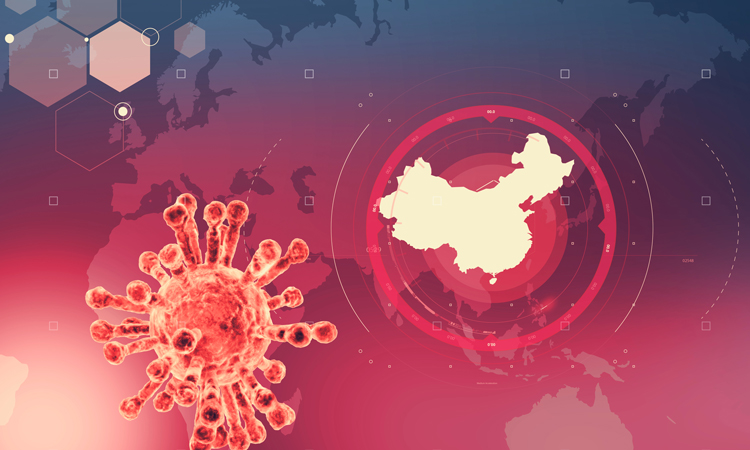

SINCE THE first case of coronavirus disease 2019 (COVID-19) being reported in December 2019, it has infected more than 180,000 people and resulted in over 7,000 deaths worldwide.* More than 70 countries and territories have been affected, with major outbreaks in Central China, South Korea, Italy, France and Iran. On 30 January the World Health Organization (WHO) declared the outbreak to be a “public health emergency of international concern” and WHO director general Dr Tedros Adhanom Ghebreyesus said doctors had “never before seen a respiratory pathogen capable of community transmission, which could also be contained within the right measures.” However, he stressed it was still possible to “push this virus back”.
A novel virus
The virus responsible for the outbreak – severe acute respiratory syndrome coronavirus 2 (SARS-CoV-2) – is a novel SARS coronavirus, first isolated from three people with pneumonia and connected to a cluster of acute respiratory illness cases reported in Wuhan, China. In February 2020, Chinese scientists sequenced the genome of the COVID-19 virus, demonstrating that it is a completely new virus, but is closely related to the original SARS-CoV, which was responsible for the 2002-2003 SARS epidemic. Led by Dr Wang Jianwei at the Chinese Academy of Medical Sciences, Institute of Pathogen Biology in China, researchers used next generation sequencing (NGS) to identify the pathogen that was causing disease in Wuhan. The team focused on five patients admitted to Jin Yin-tan Hospital in Wuhan, most of whom were workers in the Huanan Seafood Market in Wuhan.
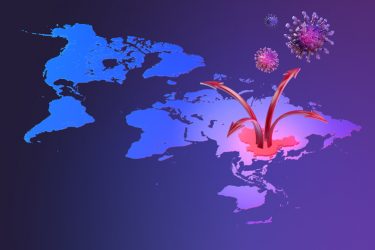

“Fortunately, the virologists in Wuhan published data on the nucleotide sequence of the virus RNA, allowing labs around the world to develop the kits which are so important for safe diagnosis,” said Professor John Oxford, Emeritus Professor of Virology at St Bartholomew’s and the Royal London Hospital, Queen Mary’s School of Medicine and Dentistry. “At least four groups in the UK are pushing ahead with vaccine development but this will take six months or so. Similar work has started in China, USA and Russia, to name but a few.”
Catalysing a big pharma response
Administering therapeutic antibodies that target and neutralise the virus, directly to patients, can provide protection much faster than vaccines”
Indeed, the pandemic has triggered the development of novel coronavirus therapeutics across the biotech industry, both by pharmaceutical companies and research organisations such as the National Institutes of Health (NIH) in the US. GlaxoSmithKline (GSK) announced that it would work with Clover Biopharmaceuticals, a China-based biotech that claims to have developed a COVID-19 vaccine candidate. GSK, which had previously stated it would allow a novel technology it has developed for vaccine production to be used by select companies working on a COVID-19 vaccine, said it would share that technology with Clover. In similar efforts, Sanofi and Johnson & Johnson are working with one of the US Department of Health and Human Services agencies, the Biomedical Advanced Research and Development Authority (BARDA), to develop a COVID-19 vaccine candidate.
Are antibodies the answer?
There are typically two approaches to arresting viral infections. These include blocking an enzyme the virus needs in order to replicate or infect cells, or to make a monoclonal antibody based on a recovered patient’s immune response. The latter is the focus of several companies, including the US biotech firm Regeneron and the Canadian biotech firm AbCellera.
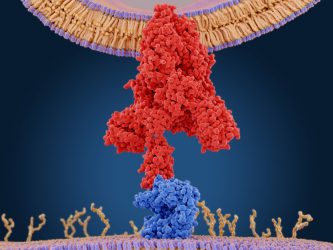

Alexandra Weirich, Manager, Marketing & Communications at AbCellera, added: “Administering therapeutic antibodies that target and neutralise the virus, directly to patients, can provide protection much faster than vaccines. This antibody therapeutic could be used to prevent illness (preventing spread of a pandemic) or to treat a patient that has already contracted the virus. Such antibodies can be discovered from patients who have contracted and already recovered from a viral infection, harnessing the power of an immune system that has already successfully fought off disease. For pandemic response, this strategy can also be complementary to vaccines. The key is to have the right platform to find these antibodies quickly.”
This virus will be more difficult to stop than SARS and it therefore requires vital work to develop efficient masks, vaccines and antivirals”
According to Bowie, the focus at Regeneron is on the virus’s spike protein – the protein on the virus cell surface that binds to the host cell and is required for infectivity. “All coronaviruses have a single glycoprotein on the virus surface, called the spike protein. Our SARS-CoV-2 antibodies will target this spike protein, since if you can block that interaction with the host cell, you can neutralise the virus. As we did with our Ebola and MERS therapeutics, we will most likely select a “cocktail” approach here of two or more fully-human antibodies, as this allows for targeting of different parts of the virus and may help mitigate against future viral mutation.” The company previously created a brand new treatment for Ebola that demonstrated “dramatic improvements” in survival rates in a clinical trial and that is currently being reviewed by the FDA. “We hope we can find similar success here,” concluded Bowie.
AbCellera is utilising an array of technologies to search through millions of individual B cells in an effort to find the unique antibodies that have the best therapeutic properties to fight SARSCoV-2. “[Our technology] uses machine learning algorithms, computation, custom robotics and automation to conduct this deep search of the immune system very quickly,” explained Weirich. “It can search the immune system orders of magnitude deeper than legacy technologies in a single day instead of months.”
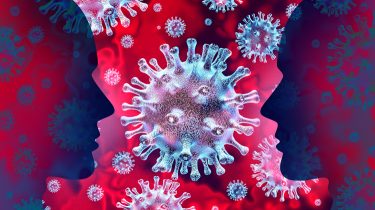

“In the current COVID-19 outbreak, other approaches have centred around discovering antibodies against the 2002-2003 SARS virus and, because the SARS virus and the SARS-CoV-2 virus are similar, are hoping to find cross-reactive antibodies that could potentially neutralise SARSCoV-2. However, our approach is to focus discovery directly from a donor sample from a patient that has recovered from COVID-19 to find potent SARS-CoV-2 neutralising antibodies.”
Stopping the spread
According to Professor Oxford, this virus will be more difficult to stop than SARS and it therefore requires vital work to develop efficient masks, vaccines and antivirals. “Meanwhile, social distancing such as stopping greeting hugs, kisses and hand shaking plus quarantine can stop this virus if we all work together.
“At the moment it is a very real threat to vital intensive care units in hospitals and to grandparents in many countries of the world and we are getting ready to help.”
*numbers correct as of 17 March 2020
About the author
Nikki Withers is the Editor of Drug Target Review and European Pharmaceutical Review.
Related topics
Antibodies, Antibody Discovery, Biopharmaceuticals, Disease Research, Drug Discovery, Drug Targets, Government, Research & Development, Targets
Related conditions
Coronavirus, Covid-19, Ebola, Middle East Respiratory Syndrome (MERS), Severe Acute Respiratory Syndrome (SARS)
Related organisations
AbCellera, Biomedical Advanced Research and Development Authority (BARDA), Chinese Academy of Medical Sciences, Clover Biopharmaceuticals, GlaxoSmithKline (GSK), Jin Yin-tan Hospital, Johnson & Johnson (J&J), Queen Mary’s School of Medicine and Dentistry, Regeneron, Sanof, St Bartholomew’s and the Royal London Hospital, US Department of Health and Human Services, US Food and Drug Administration (FDA), US National Institutes of Health (NIH), World Health Organization (WHO)







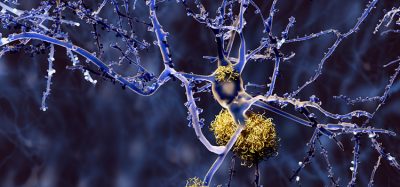

the only solution of this is seems to be in SARS vaccine. there is something we can do lil bit alteration in SARS vaccination.